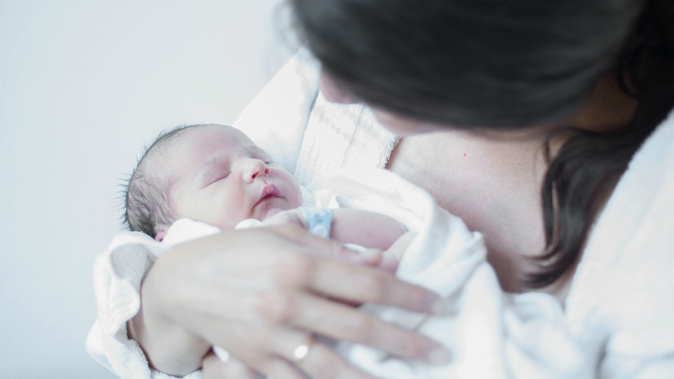
A weight of responsibility is lying with the wellness industry in ensuring expectant parents have realistic expectations of birth.
Pregnancy specific yoga, and the likes of hypnobirthing and acupuncture are rising in popularity as more people become concerned of their overall health.
But while the New Zealand College of Midwives supports the benefits from activities such as pregnancy yoga - there is concern parts of the industry are placing guilt on parents as unaffordability hits.
A 37 percent caesarean rate was reported at Christchurch Women's Hospital last year, while wider Te Whatu Ora data shows just 9 percent of women gave birth at a primary facility or birthing unit in 2020.
Nationally, caesarean section rates have increased in the 11 years to 2020 - the highest ever recorded.
The College of Midwives' chief executive Alison Eddy said if a woman feels something like pregnancy yoga is benefiting her health - they should go for it.
But she said it isn't absolutely necessary.
"The most important thing for a healthy pregnancy is to have a healthy diet - take the recommended supplements...folic acid prior to and in the first 12 weeks of pregnancy and iodine throughout the pregnancy and breastfeeding".
Eddy said it's a very realistic expectation for a healthy woman with an uncomplicated pregnancy to give birth in a non-hospital setting.
"But I think there is a lot of pressure on women in today's society...for everything to be just so and I think part of the process of being pregnant is to be able to trust in the process, trust in your care-provider."
Eddy adds the pregnancy itself is only the beginning of the pressure placed on women - as there's a whole other industry of what to buy once the baby is born.
"Sometimes you have to take a step back from all of that and think what's really important here and it can be really expensive and unaffordable for a lot of people to indulge in these things."
Midwife, trauma therapist, well-being coach and Christchurch's Flow Wellbeing Centre director KeiShana Coursey has been developing her personal brand Opti-mum - wrapping in private workshops, coaching and yoga for nearly a decade.
She is adamant safe pre-natal exercise classes - including yoga - are necessary in supporting pregnant women, and that was a missing piece in her experience as a midwife.
Coursey said given the level of caesareans, it's important women can cope with any type of delivery - and wellness courses gearing women up for a perfect birth is dangerous, because if it doesn't happen, it can cause trauma.
She cites that women need knowledge, alongside practical skills on how to move, breathe and support a baby into an optimal position for birth, as well as increase pregnancy comfort.
“I’m sure you’ll be astounded when you see some of the offerings [online] including things like a plank or inappropriate shapes where women are upside down or squatting in deep squats, which actually isn't appropriate”.
Meanwhile across the ditch, a new Australian study has found more people are leaning on the internet as a source of maternity and midwife support.
The study "Midwifery care and social media" has found the digital age is having a mixed impact on pregnant people.
Central Queensland University lecturer, midwife and lead-author Rachelle Chee said the most compelling findings can't be categorised into negative or positive.
She said it's concerning it’s setting a perceived standard of how pregnancy, birth and early parenthood is supposed to be - and urges people to take this information to their health providers.
But on the flipside, it can be empowering in how much more access people have to information and can build up a community, Chee said.
"It's incredibly difficult to navigate, and a lot of people that engage with content on social media really think they have a good ability to discern fact from fiction - from misinformation.
In a lot of cases people do, but there is also a lot happening on an unconscious level when you are exposed to different types of content".
Chee warns there is a level of marketing that can make it difficult to interpret content objectively, and the relationships influencers have with followers can be impactful when it comes to dangerous behaviour such as handstands while pregnant.
"That absolutely can reinforce the idea to them that things that would be considered generally risky behaviours are perhaps not risky behaviours".
Top Australian nutritional biochemist Dr Libby Weaver said the pregnancy wellness industry has grown enormously.
She pinpoints it to becoming more prevalent in the seventies when British research by The Foresight Foundation compared pregnancy outcomes.
She further believes people are seeking support when challenges linked with infertility cannot be explained.
While Dr Weaver's focus is predominantly in nutrition – she said having an open mind into how a birth may go will likely lead to the best outcomes.
But she recognises social media can warp a person's perception of birth - and being flexible on how the delivery will turn out is easier said than done.
Dr Weaver said one key factor is a woman's irons levels are robust, as they'll halve during pregnancy – and ensuring they are having plenty of whole real food.
Take your Radio, Podcasts and Music with you









